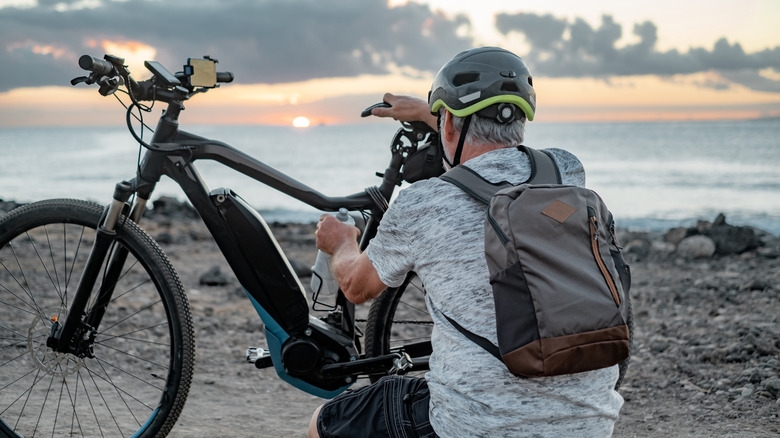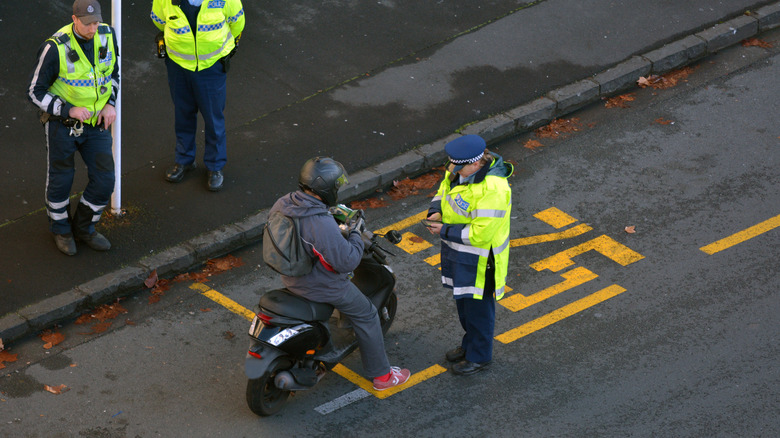This State Wants To Make Modded E-Bike Owners Follow Motorcycle Rules
More environmentally friendly and increasingly more affordable, electric motorcycles like Honda's upcoming WN7 aim to replace combustion-engine-powered motorcycles on the roads of the near-future. But electric bicycles are already all over, with numerous e-bike brands manufactured right in the United States. And, now that modders are boosting their e-bikes top speeds by installing more powerful hardware, the line between an electric bicycle and an electric motorcycle is getting blurred.
Now, Florida lawmakers have decided to push back against the confusion. On October 22, 2025, Florida state senators introduced House Bill 243 that, if passed, would instate some new restrictions on the legality of modding e-bikes. For starters, modifying an electric bike to be able to exceed the original manufacturer's speed limits would be illegal. More far-reaching, however, is the proposed distinction between electric bikes and electric motorcycles. According to the bill (PDF), an electric motorcycle will be defined as, "any motorcycle powered by an electric motor of 750 watts or more that is capable of a speed greater than 28 miles per hour."
Thus, the line in the sand is clear: any e-bike fast enough and with a powerful enough motor will be considered a motorcycle. Most electric bicycles fall below the range, but some high-end options surpass it by a significant margin. For example, the Victrip R6 Pro has a 1500W motor and a top speed of 35 mph — and it's marketed in the U.S. as an "electric bike for teens and adults." But, should the bill pass, R6 Pro riders would need to follow all the same state laws surrounding full-sized motorcycles, including having a license, getting the vehicle registered, and adhering to traffic laws.
Florida is not the first to crack down on souped-up e-bikes
Florida's proposed bill comes in the midst of what has been described as a safety crisis, as crashes from high-speed electric bikes have resulted in injuries and fatalities across the country. On October 24, New York City enacted a 15 mph speed limit for e-bikes, yet loopholes and confusing definitions continue to fill the metro's streets with high-speed electric bikes. Across the pond, a similar story is unfolding. U.K. physicians say trauma wards are overburdened from e-bike-related accidents, even with the country's stricter laws (electric motors over 250W and speeds above 10 mph are treated as motorcycles).
Even with all the laws, manufacturers have found easy ways to still sell high-powered e-bikes legally. After all, you can buy a motorcycle at any age — registration and legally riding it on public roads is a different question. Sellers simply have to put disclaimers, such as "for off-road use only," on their product listings to skirt around accountability.
But there are fewer gray areas when it comes to modifying electric bikes to make them go faster than the manufacturer intended. On July 2, 2024, California put a law into effect that bans the sale of "speed hack" mod kits, and any modded bikes that exceed their class registration must be newly registered as a motorcycle. Illinois follows a similar classification system, and the state requires that modded e-bikes be labeled with updated registration information. It seems states are cracking down everywhere, so electric bike riders out there should stay up-to-date before hitting the streets.

